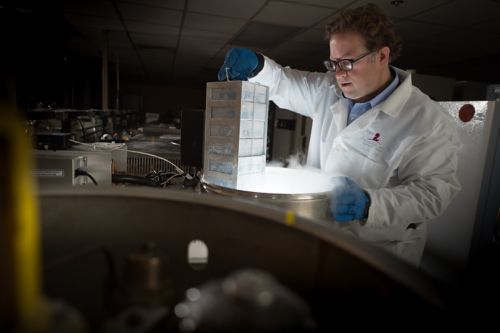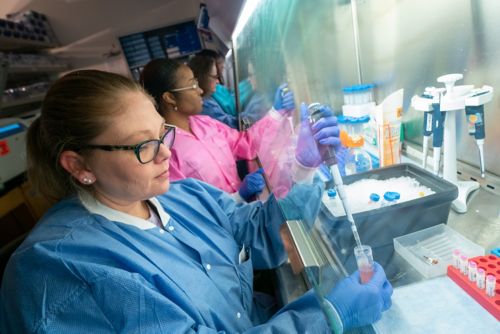St. Jude Family of Websites
Explore our cutting edge research, world-class patient care, career opportunities and more.
St. Jude Children's Research Hospital Home

- Fundraising
St. Jude Family of Websites
Explore our cutting edge research, world-class patient care, career opportunities and more.
St. Jude Children's Research Hospital Home

- Fundraising
St. Jude
Biorepository
The St. Jude Biorepository is the central, institutional repository of biological specimens at St. Jude Children's Research Hospital embedded in the Department of Pathology.
Biorepository

“ Overall, families shared that donation [to the Biorepository] was important to them, that it gave some meaning to what they had gone through. We have focused so much effort on these rare pediatric cancers. In many cases, it involved many years of treating patients with these diseases and collecting clinical samples so that there was material available for research.”
"Another testimonial or important message"
"Another message, if needed"
OVERVIEW
The St. Jude Biorepository is the central, institutional repository of biological specimens at St. Jude Children’s Research Hospital embedded in the Department of Pathology. As one of the first five College of American Pathology-accredited biorepositories, St. Jude’s center provides biobanking and specimen processing services to investigators across the institution. The Biorepository processes, stores, and distributes specimens for numerous clinical trials. Additionally, the Biorepository banks left-over diagnostic specimens for future research, under the TBANK protocol.


IMPACT
The St. Jude Biorepository was launched in the mid 1970s with blood and bone marrow samples from childhood leukemia patients. Now, the library contains more than 500,000 specimens donated by current patients, long-term survivors, participants in St. Jude clinical trials worldwide, and children with non-malignant blood disorders such as sickle cell disease and bone marrow failure syndromes.
Tissue processing services
- Processing bone marrow and blood to isolate, distribute and store white blood cells
- Processing bone marrow specimens for diagnostic and MRD assays
- Processing solid tissues (tumor and normal) to distribute and store samples
- Processing blood samples to separate serum or plasma for distribution and storage
- Cryopreservation of solid tissues, body fluids and cells for storage
- Differential counts of samples
- Distribution of human biological specimens within and outside the institution
- Extraction, banking and distribution of DNA and RNA to investigators
Instrumentation
The Archives contain samples of human solid tumors, uninvolved tissues and cell suspensions of tumor and normal hematopoietic cells collected at diagnosis, and at various subsequent time points within the course of therapy. DNA from diseased and uninvolved specimens is extracted upon request. Serum and plasma collected at diagnosis and at intermittent periods are also banked. Tumor tissues are stored in aliquots of snap-frozen tissue blocks and as extracted DNA. In addition, the Biorepository also banks urine, cerebrospinal fluid, ascites, pleural fluid, FFPE unstained slides, and FFPE scrolls.



